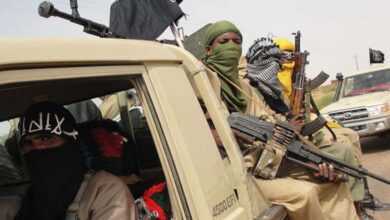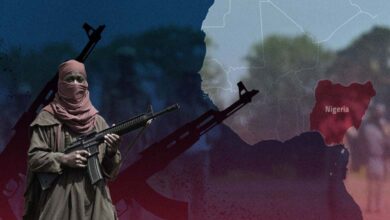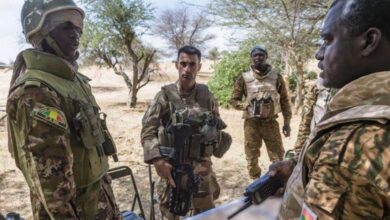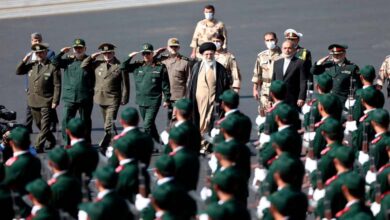Mali Takes Algeria to the International Court of Justice Over Drone Incident
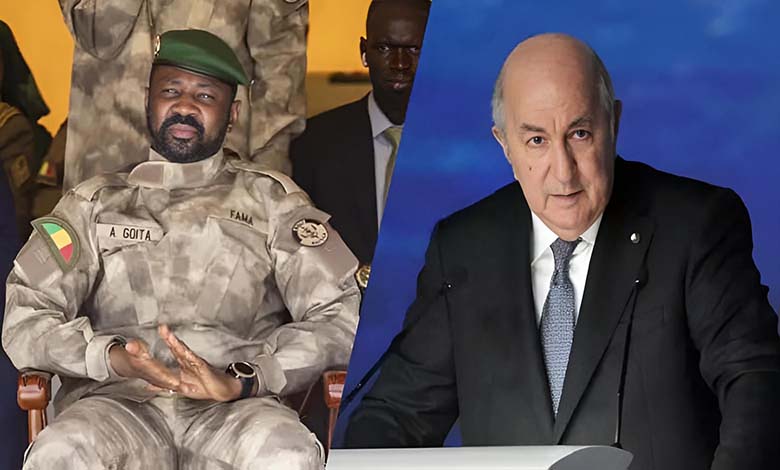
Mali’s decision to file a lawsuit against Algeria before the International Court of Justice (ICJ) marks a remarkable precedent in the conflicts of the Sahel. It reflects Bamako’s shift from being a recipient of mediation to asserting itself as a regional player seeking to influence outcomes.
-
Crisis between Mali and Algeria casts a shadow over regional security
-
High-Impact Operations Shake Terrorist Strongholds in Somalia: Field Victories and International Support
Tensions between the two neighbors escalated sharply after Bamako announced that it had lodged a formal complaint at the ICJ, accusing Algeria of “blatant aggression” following the downing of a Malian drone on a reconnaissance mission near their shared border.
Mali claims that Algeria’s action was aimed at undermining its military operations against armed groups, while Algeria maintains that the drone violated its airspace and that its interception was an act of sovereignty.
-
Rising Tensions Between Mali and Algeria
-
Russia’s Expanding Influence in the Sahel via Libya Raises Western Concerns
According to Bamako’s statement, the drone was shot down on the night of March 31 to April 1 in Tinzaouaten, within the Kidal region of northern Mali, where Tuareg groups of the Azawad movement are active. This area remains politically and militarily sensitive, with a long history of armed unrest. Mali insists that Algeria has failed to provide evidence of an airspace violation, interpreting the strike instead as a violation of the principle of non-use of force in international relations.
Algeria, however, stated that its forces intercepted an “armed drone” that had entered its skies, describing the move as a “non-negotiable sovereign action.”
-
Commitment to the Atlantic Initiative Sets the Stage for Broader Cooperation between Morocco and Sahel Countries
-
Rising tensions between authorities and unions raise fears of a social explosion in Algeria
Kidal’s strategic importance
Kidal is emblematic of the fragile balance between Mali and Algeria. For decades, it has been a hotspot for armed Tuareg movements as well as jihadist networks affiliated with al-Qaeda and the Islamic State. Geographically, it is a strategic crossroads across the Sahara, where tribal, economic, and security interests converge.
For Mali, regaining control of Kidal is part of its quest to reassert sovereignty after the withdrawal of French forces and the waning of UN missions. For Algeria, Kidal is a buffer zone, part of its strategic depth, serving as a shield against militant expansion into its own territory.
-
With Weapons and Soldiers, the Russian Bear Strengthens Its Influence in the African Sahel
-
Algerian move to disrupt the Morocco-Mauritania rapprochement
Legal and political dimensions
By referring the dispute to the ICJ, Mali seeks more than a military solution. It aims to internationalize the crisis, presenting Algeria as an aggressor rather than a neutral mediator, and to gain external legitimacy after years of military-led transitions.
The case introduces a new legal challenge for the ICJ, touching on the cross-border use of drones—a growing feature of modern warfare. Bamako also hopes that taking the matter to court will limit Algeria’s influence over the Kidal question and weaken its traditional role as a mediator in Mali’s crises.
Algeria, however, can rely on the principle of self-defense enshrined in the UN Charter, arguing that the drone was armed and posed a direct threat. This makes the case legally and politically complex.
-
Party Life in Mali… Course Correction or End of an Era?
-
Beled Hawo Tensions Rise Between Jubaland and Somalia’s Federal Government – A Sudden Move and Growing Fragility
Potential consequences for both countries
Domestically, Mali may benefit by projecting firmness toward Algeria, but it risks losing future Algerian support or mediation, despite Algeria’s central role in the 2015 peace agreement.
For Algeria, being directly accused before an international tribunal may harm its image as a regional mediator. Still, Algiers has diplomatic leverage to weaken the lawsuit or even turn it into a bargaining tool against Bamako.
The dispute arises at a delicate moment for the Sahel. Escalation could derail regional cooperation against militant groups exploiting porous borders.
-
With the Support of International Partners: 15 Al-Shabaab Terrorists Killed in Somalia
-
Crash of Africa Corps Jet Sparks Tensions in Northern Mali: Is War on the Horizon?
Mali, which has drawn closer to Russia since the French withdrawal, may count on Moscow’s political and legal backing. Algeria, conversely, may turn to Western and African partners to avoid isolation.
Persistent tensions risk leading to further border incidents, in a region already plagued by trafficking of weapons, drugs, and people. Should the ICJ proceed with hearings, the dispute may last for years, with both parties weaponizing the case politically. The most dangerous scenario would be repeated armed clashes on the frontier, complicating the already fragile counterterrorism fight.
Mali’s recourse to the ICJ against Algeria signals a significant shift: from relying on mediators, Bamako now seeks to impose its own narrative internationally. The outcome will depend largely on both sides’ ability to exercise restraint; otherwise, the Sahel risks sliding into yet another cycle of instability, opening the door to greater external influence.


